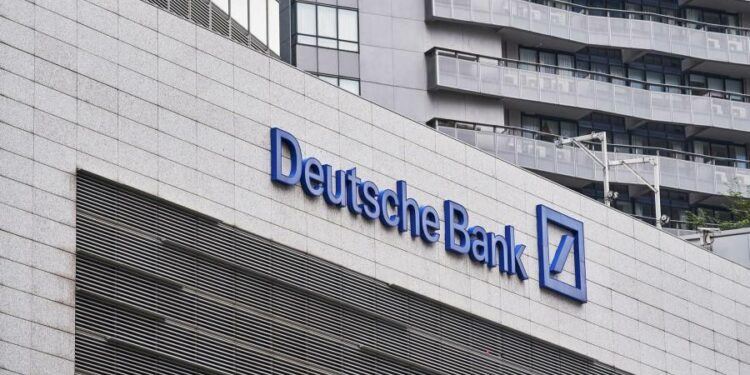Deutsche Bank has been fined by the German financial regulator for failing to implement measures designed to prevent rate-rigging, a blow to the country’s largest lender, which is trying to move on from the Libor scandal.
BaFin said that Deutsche Bank did not always have “effective preventive systems, controls and policies” in place to ensure the “integrity and reliability” of data relating to Euribor, the euro rate-setting mechanism comparable to Libor. The regulator imposed an €8.7m fine.
The move comes less than seven years after Deutsche Bank was forced to pay a record $2.5bn in a settlement with US and UK authorities after several employees were found to have colluded to manipulate Libor, the benchmark rates that underpin trillions of dollars of loans and derivatives.
The bank, which had the right to appeal, said it was accepting the fine to create “final legal certainty”.
The fine is the first of its kind to be issued by BaFin in relation to legislation brought in following the Libor scandals that is designed to prevent further rate-rigging. It is also the regulator’s second-highest fine ever, after a €40m penalty over anti-money laundering weaknesses handed to Deutsche Bank in 2015.
The initial fine demanded by BaFin was initially significantly higher than the amount announced, according to two people familiar with the matter.
A spokesman for Deutsche Bank confirmed that BaFin had taken action after examining the bank’s internal controls for submissions of Euribor data. The issues investigated related to a period between early 2019 and 2020, a person familiar with the matter said.
But the spokesman added: “Deutsche Bank has no indication that the fined issue led to incorrect submissions to the benchmark administrator,” and said the lender had already begun to strengthen its internal system.
The shortcomings were first uncovered by external auditors and then flagged to the bank, according to people with knowledge of the matter.
BaFin, which has been criticised for its oversight of Wirecard and Greensill Bank, has been under pressure to provide more robust regulation of Germany’s financial system. New president Mark Branson, who was hired from the Swiss regulator Finma, started this year.
In October, the regulator took the unusual step of curtailing Berlin fintech N26’s expansion plans, citing concerns about the management structure at the rapidly growing start-up.











